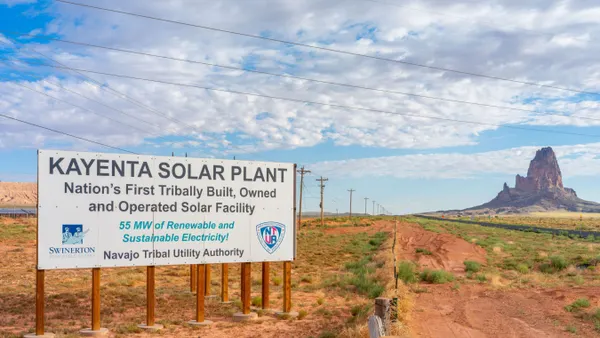Dive Brief:
- New vehicles in Washington will be required to meet the most stringent emissions standards in the country, regardless of whether the Trump administration is successful in rolling back those requirements, state officials announced on Wednesday.
- Under the new rule adopted by the Washington Department of Ecology, new vehicles licensed in the state will continue meeting California's standards, which aim to reduce the amount of greenhouse gases that cars and trucks emit through 2025.
- Last summer the White House proposed freezing automobile emission standards at 2020 levels and revoking California's authority to set its own rules for vehicle efficiency and electric cars. The state has since struck back, defending its authority to impose more stringent requirements.
Dive Insight:
Advocates of cleaner transportation cheered Washington's move, but they also say it is unlikely to have a significant impact on electric vehicle (EV) adoption — which many see as a key strategy in reducing greenhouse gas emissions.
"We certainly applaud the move. Washington is continuing to move in the right direction," Andrew Linhardt, deputy advocacy director for the Sierra Club's Clean Transportation For All campaign, told Utility Dive. "But the impact on EVs is uncertain."
Linhardt said the greenhouse gas rules California promulgated, which Washington committed to follow, are not focused on electric vehicles — the state has a specific Zero Emissions Vehicle (ZEV) mandate in place for that.
More than a dozen states have adopted California's vehicle standards — mostly in the Northeast and Mid-Atlantic, along with Washington and Oregon. And most of those also adopted California's ZEV mandate, but Linhardt said that would require additional legislation in Washington.
"This is more about [internal combustion engines] becoming as efficient as possible," said Linhardt. "The rule itself, you don't need to make EVs to meet the rule."
The Trump administration floated the vehicle standards freeze last summer and Linhardt said the final rule could come out this spring. One thing to watch for is whether California's stricter standards will remain under pressure, he said.
"It's unclear if they're going to go through with an attack on California's authority," Linhardt said. The waiver had been challenged before in the Bush administration and upheld by District courts, but never reached the U.S. Supreme Court. When the Obama administration came in, the challenge was dropped.
In recent years, Washington has made strong progress on EVs, with registrations growing five-fold since reaching almost 8,000 in 2013.
The Washington State Department of Transportation reported last month that since December 2017, plug-in EV registrations increased by 37%. And as of Nov. 30, 2018, there were about 41,000 plug-in EVs registered in the state, with battery electric vehicles outnumbering plug-in hybrids by about 2-1.
Despite the progress, more must be done, said Linhardt. "EV adoption in general needs to move more quickly, to avoid the worst of climate change."
According to Washington state officials, rolling back vehicle emissions standards as the U.S. Environmental Protection Agency proposed would result in an additional 1.8 million metric tons annually of carbon dioxide emissions in the state by 2035.
Nationally, they say a rollback could mean "an additional 500 million metric tons of carbon dioxide going into the atmosphere over the lifespan of the vehicles."














